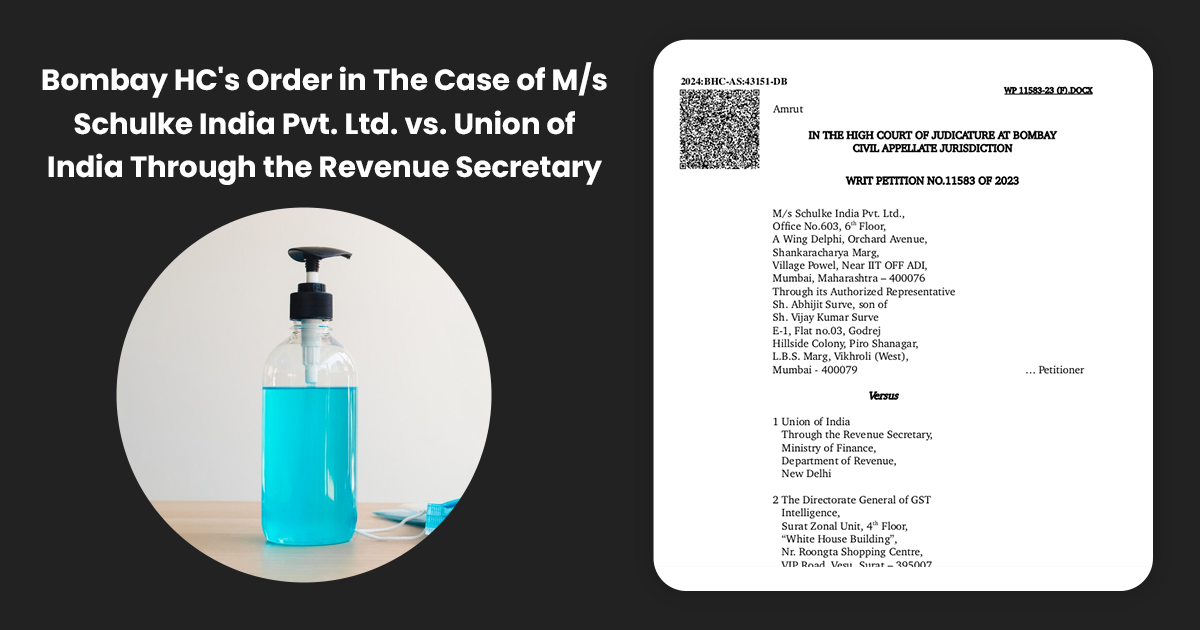
In an important case, the Bombay High Court ruled on Monday and invalidated a 2020 press release from the Union Ministry of Finance.
This press release had put alcohol-based hand sanitizers under the category of “disinfectants” which is subject to an 18% Goods and Services Tax (GST). The court highlighted that such product classifications fall strictly under the jurisdiction of judicial and quasi-judicial authorities.
The division bench, comprising Justices MS Sonak and Jitendra Jain, noted that the Ministry’s press release essentially instructed these authorities to place hand sanitisers in a different GST tax bracket. The bench highlighted that the Ministry’s press release of a fiat digitally, ignored the autonomy of judicial and quasi-judicial bodies, as outlined in the Central Goods and Services Tax Act.
Emphasizing the constitutional validity of separation of powers, the court clarified that the executive cannot violate responsibilities reserved for judicial or quasi-judicial authorities. Any activity by the executive to sway or dictate these bodies’ decision-making processes is strictly prohibited.
The ruling was issued in response to a petition filed by Schulke India Pvt. Ltd., a Mumbai-based manufacturer of hand sanitisers.
The company contended that its products should be classified as “medicaments,” which are subject to a lower GST rate. However, the 2020 press release designated them as “disinfectants,” which comes under a higher tax rate.
Based on the press release’s classification, the Directorate General of GST Intelligence served a show-cause notice to Schulke India in April 2023, demanding the payment of differential tax, including interest and penalties.
The court clarified the difference between executive and judicial roles, affirming that product classification is an interpretative task that must be conducted independently by judicial and quasi-judicial bodies, free from executive influence.
The court made the press release invalid but did not nullify the show-cause notice sent to the company. The court clarified that Schulke India could question the notice through other legal avenues.
The Bombay High Court concluded that the petitioner had presented a valid case for overruling the press release. This decision aims to ensure that judicial and quasi-judicial bodies can independently determine product classifications, free from any remote executive influence.
| Case Title | M/s Schulke India Pvt. Ltd. vs. Union of India Through the Revenue Secretary |
| Citation | ITA 1092/2018 |
| Date | 11.09.2024 |
| Counsel For Petitioner | Mr Bharat Raichandani, Ms Priyanka Rathi, Mr Prasad Avhad, Ms Ashwini Chandrasekaren , and Mr Kuldeep Nikam |
| Counsel For Respondents | Mr Subir Kumar, Mr Ram Ochani, Mr Abhinav Palsikar and Ms Ashita Aggarwal |
| Bombay High Court | Read Order |









